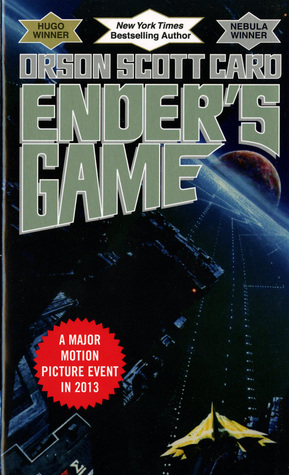 Ken says that if I had read this book as a teenager, I'd probably give it straight up 5 stars. I can see how young people reading this book might have a much more formative experience, which kind of makes me regret not having read it earlier.
Ken says that if I had read this book as a teenager, I'd probably give it straight up 5 stars. I can see how young people reading this book might have a much more formative experience, which kind of makes me regret not having read it earlier.
The whole Battle School institution was an intriguing concept. Though the book held my interest throughout, it felt like everything was being laid out to set up something bigger, and I kept wondering when something would really happen. When it finally came down to it, I liked the ending, and I was not disappointed.
I liked that the book detailed Ender's inner thought processes, so we could easily see how he was a genius in the way he perceived, interpreted, and responded to other people's actions. I kept forgetting that he was only a child because the extent of his capabilities were so advanced. I had to repeatedly remind myself that he was identified as the most exceptionally gifted child in the world.
I was a little annoyed that everyone kept referring to the aliens as "buggers". Didn't they have an official, less childish name? And why didn't people use it? (Ken says other books in the series do reference a more formal name for the aliens.)
The Peter / Valentine personality dichotomy was interesting, and I liked how they teamed up later on, but I wish the book had gone into more detail about what their political philosophies were. For example, apparently Valentine actually coined new phrases in her popular writings - but what kind of phrases? I think it'd be fun to know. Maybe the lack of political details actually made the book more readable for younger audiences, so I shouldn't hold that against the book.
The version I read had a great introduction by the author, which I think really did provide additional insight that allowed me to better appreciate the book.


No comments:
Post a Comment